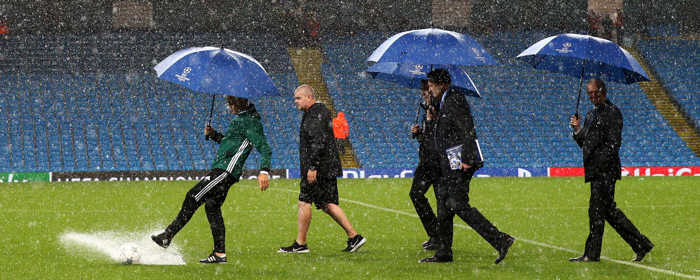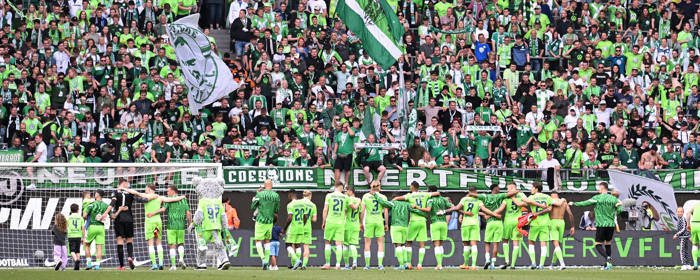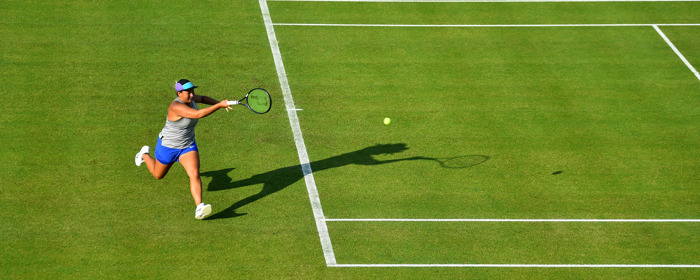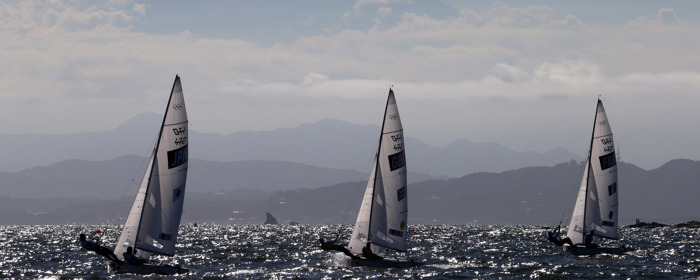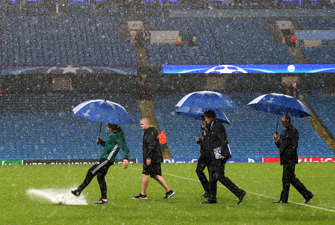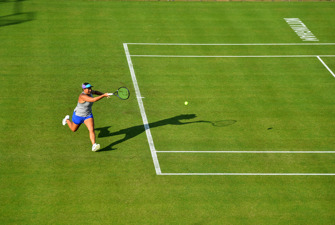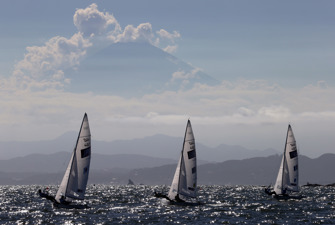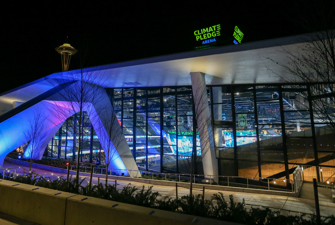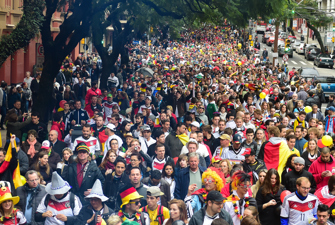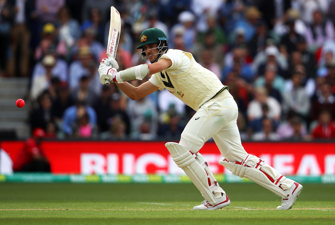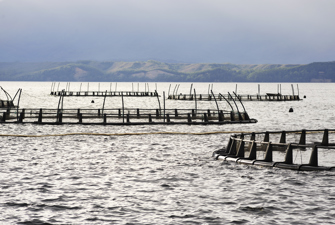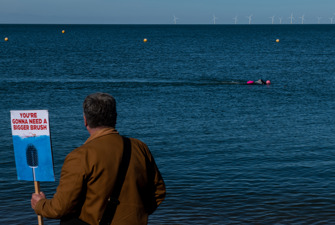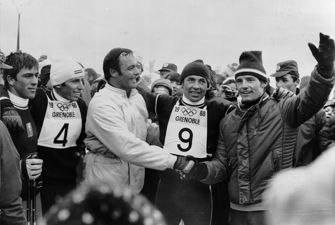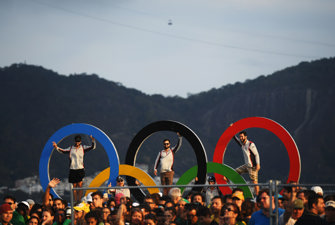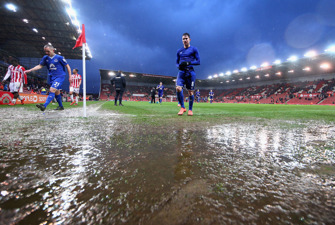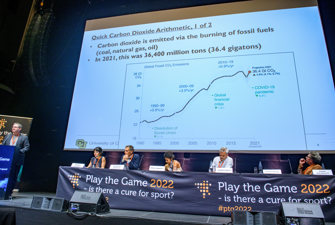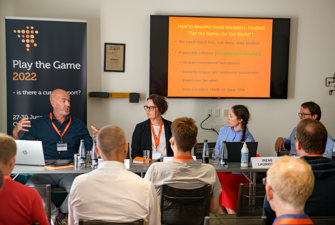Mapping the sport and climate space
Over the last two decades, the relationship of sport to the global climate crisis has become increasingly clear and increasingly urgent.
The risks and dangers posed by global heating and extreme weather to athletes, fans, and facilities have become tangible, as hurricanes sweep aside cricket stadiums, heatwaves hospitalise spectators, and record floods consume football fields and golf courses alike.
Sport has begun to respond. Since the creation of the UN Sport for Climate Action framework in 2018, a growing network of national and international sporting federations, professional leagues and clubs, athletes, fans, as well as NGOs and businesses have been developing climate policies and advocating and campaigning on the issue.
This has been paralleled by a growing body of academic research on the subject as well as much more serious journalistic reporting.
Read more about the the history of sport and climate change in the article 'Sport and the environment: A very short history'
Now, Play the Game seeks to map this new space in global sports politics. It is designed first and foremost as a guide for those new to the debate, but the hope is that even the most seasoned sport and climate activist will find something useful here.
This theme page is developed by journalist and academic David Goldblatt in January 2023. The page is divided into five sections:
The impact of the climate crisis
This section reviews the research and reporting on how the climate crisis is directly affecting the world of sport, with an emphasis on winter sports, heat illnesses, drought, air pollution, extreme weather, and sea level rises and flooding.
Understanding sports’ carbon emissions
This page looks at sports’ contribution to the climate problem. It reviews the carbon audits that have been conducted by major sporting organisations, as well as more academic research on the topic. It also makes some plausible estimates of the sports carbon footprints and considers areas - like the sports goods industry - that have not yet been included in the count.
Global frameworks for adressing climate change
This page looks at the global frameworks for climate action in sport: ISO20121, a global standard for managing environmentally sustainable sports events, the UN’s sport for climate action framework (UNSCAF), and its more challenging Race for Zero programme.
Sports’ responses to the climate crisis
This page looks at how the world of sport at different levels has taken steps to deal with the climate crisis and the wider environmental problems it is entwined with, including:
- the mechanisms of governance and regulation at a global level, like the UN Sport for Climate Action Framework, and the UN Race to Zero programme
- the responses of international sports federations; and the policies of leading national sports organisations, commercial leagues, and clubs, with a special focus on football
- the emergence of a range of NGOs, from athlete activists to fan-based campaigns, working on climate and sport.
Sustainable innovations in sport
This page looks in more detail into some of the best environmental practices from new stadium designs over redesigning sports competitions to new business models and products in the sports goods industry.
Current debates
This page looks at areas of controversy and debate in the field. In particular:
- the place of the global south in the sport and climate space
- the call for sport to disengage from fossil fuel money
- the very real limits and problems of carbon offsetting programmes
- the idea that sport’s unproblematic relationship with commercial and geographical growth needs to be radically rethought.
Key readings
These five reports are amongst the best overviews of the state of research on climate and sport. All of them review the current and future impact of climate change on sport in their field, look at sport’s contribution to the problem, and think about the ways in which both can be tackled.
- The Climate Coalition (2018)
- BASIS (2019) Hit For Six: The Impact of Climate Change on Cricket, BASIS,
- Goldblatt (2020) Playing Against the Clock: Global Sport and the Climate Crisis, Rapid Transition Alliance
- Rice et al., (2021) Game, set, match: Calling time on climate inaction. Australian Climate Council
- WWF France (2021) Dereglement Climatique: Le Monde Du Sport a +2°C et +4°C, WWF France
Key media sources
- The sustainability report is the single best source of news on sustainability in global sport. The site regularly posts news, interviews, and opinion pieces on every aspect of sport and the environment and has a very good back catalogue of podcasts, featuring academics, sustainability managers, athlete activists, and other leaders in sport speaking on everything from racial and environmental justice to new recycling technologies for sport goods.
- Sport is a very useful website, run by the IOC and other sports bodies, that gathers together a wide range of material on sustainability published by international sports organisations. It is particularly strong on the sustainability statement and policies of international sports federations.
- The Sports Ecology Group is a global network of academics working across the full range of issues in sport and sustainability. Its website has an excellent curated selection of academic work and research.
- Two notable media interventions in the field in the run-up to COP 26, held in Glasgow in Scotland, were the BBC’s Sport 2050 project and the podcast Emergency on Planet Sport.
- The BBC commissioned a group of academics and journalists to imagine what kind of news the BBC sports department would be reporting in 2050 if carbon emissions were not reduced. The BBC has subsequently created a sustainability section within its sports news website.
- Emergency on Planet Sport is an eight-part podcast featuring interviews with many leading athletes who have become climate activists, looking at how the climate crisis will affect them and their sport personally as well as the bigger issues, not to mention some specially commissioned poetry.
